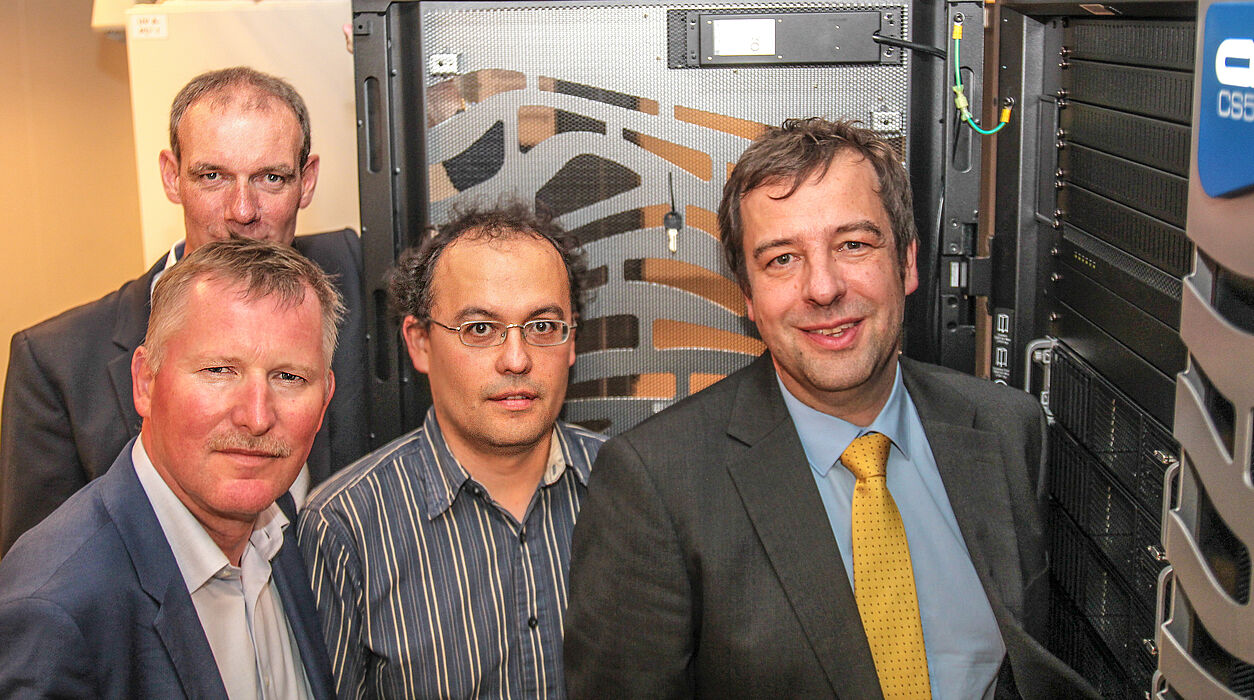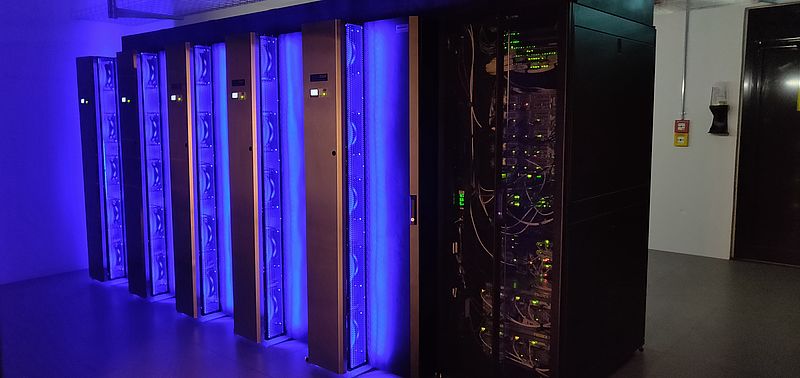On September 21, the new supercomputer “Noctua” (Latin: Little Owl) was inaugurated at Paderborn University. The high-performance computing system is expected to be one of the ten most powerful university installations within Germany. This is the first step on the path into a new era: The construction of a new data center and research facility will commence in 2019, with the federal state of Germany, the state North Rhine-Westphalia and Paderborn University contributing a total of €25.4M until 2022. Out of this, a total of €10M will be invested towards the installation of the Noctua supercomputer. Based on the recommendation of the German Council for Science and Humanities (Wissenschaftsrat), the Joint Science Conference (Gemeinsame Wissenschaftskonferenz, GWK) approved funding for the project in June 2017.
“This is a special and identity-establishing day for the University,” said Prof. Dr. Johannes Blömer, Vice President for Research and Junior Academics. On the one hand, the computing system would be able to perform highly complex simulations, and on the other hand, it would provide the necessary computing power for researchers throughout Ostwestfalen-Lippe, said Blömer.
With the commissioning of the new system, the university’s Paderborn Center for Parallel Computing (PC²), replaces their former flagship system by a significantly more powerful and more energy-efficient HPC (high-performance computing) system. Prof. Dr. Christian Plessl, Chairman of the PC² board and computer scientist: “The new Cray CS 500 HPC cluster is the most powerful installation in Paderborn so far and delivers a performance of 535 TFLOPS in the LINPACK benchmark. The unique property: In addition to the 256 compute nodes with Intel Xeon Gold 2.4 GHz processors there are 16 additional nodes that contain two so-called FPGA cards each. These customizable hardware blocks play an increasingly important role in modern computer architecture.” Plessl continues: “FPGAs (Field Programmable Gate Arrays) already attract high attention as particularly energy-efficient accelerators in commercial data centers. With a unique HPC installation of 32 state of the art FPGAs that are especially promising for scientific applications, the PC² can become a pioneer in establishing this technology. Noctua is currently expected to be the biggest installation of its kind in the world and provides the best conditions for prolific research.”
Prof. Dr. Thomas D. Kühne, Vice Chairman of the PC² board and theoretical chemist, is convinced: “With Noctua, all computational science and engineering users get the much-needed computing power to be internationally competitive. In particular, highly complex simulations that otherwise could be done only at national highest-performance computing centers—or not at all, can now be performed”.
Pascal Barbolosi, Vice President EMEA sales at Cray, confirms: “Cray has always been devoted to pushing the limits of scientific computing, by combining the most advanced technologies to achieve the desired performance. Integrating a high ratio of state-of-the-art FPGAs in an advanced supercomputer cluster system will provide a remarkable heterogeneous computing platform that enables researchers to perform a new dimension of experiments. We are happy to support Paderborn University researchers in this exciting phase with our long-standing experience in reconfigurable systems.”
Frank Klapper, Head of Information Management and University Development at Bielefeld University and spokesman for “Digitale Hochschule NRW”, was also visibly excited: “Here [in Paderborn], you have the highest expertise. Paderborn is simply passionate about this topic.”
The Noctua HPC system is expected to be generally available for users by the end of October 2018. The complete specifications of the system are available <link https: pc2.uni-paderborn.de hpc-services available-systems noctua>here.
A <link https: www.youtube.com>movie documenting the construction of the Noctua system can be found on <link https: www.youtube.com channel ucu3navoy1d6hxmulbh0f5fg>our youtube channel.



